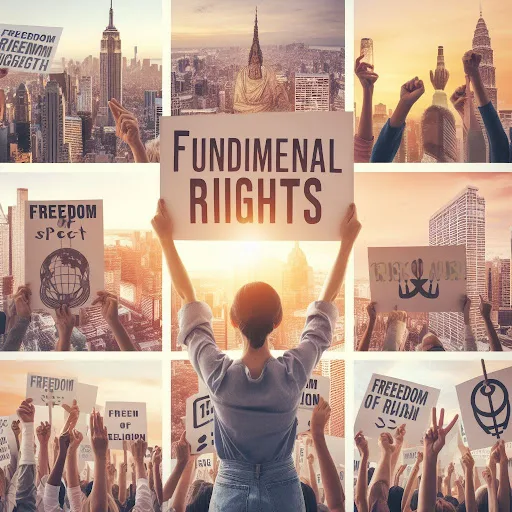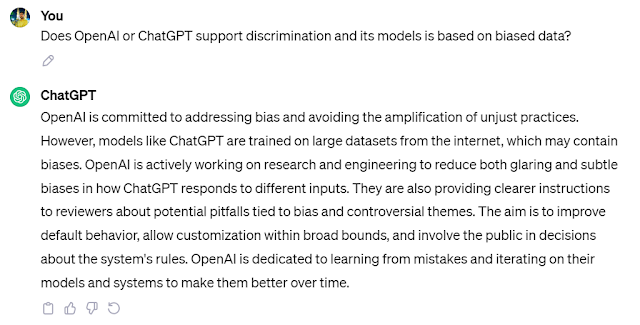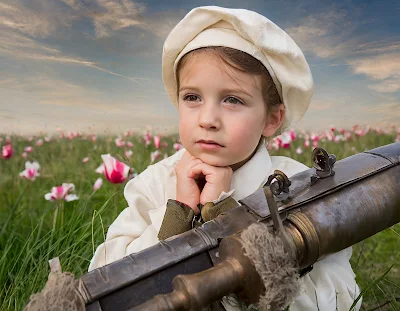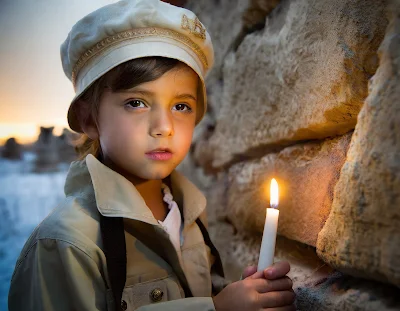Does OpenAI or ChatGPT support discrimination and its models is based on biased data?
OpenAI is committed to addressing bias and avoiding the amplification of unjust practices. However, models like ChatGPT are trained on large datasets from the internet, which may contain biases. OpenAI is actively working on research and engineering to reduce both glaring and subtle biases in how ChatGPT responds to different inputs. They are also providing clearer instructions to reviewers about potential pitfalls tied to bias and controversial themes. The aim is to improve default behavior, allow customization within broad bounds, and involve the public in decisions about the system's rules. OpenAI is dedicated to learning from mistakes and iterating on their models and systems to make them better over time.
Echoes of Peace: The Silent Cry of Innocence
In a world echoing with the footsteps of warriors, there exists a tale untold, a story that resonates with the silent cry of innocence. It's a narrative of a war-ridden land where the cost of conflict is not measured in victories or defeats but in the poignant losses of innocent civilians.
Once upon a time in a small village nestled between hills and rivers, there lived a community that knew nothing of strife. Children played in the meadows, and laughter echoed through the air like a sweet melody. However, the shadow of war loomed large as distant drums of conflict thundered, shattering the tranquility that once defined their existence.
As the conflict unfolded, innocent civilians became unwitting participants in a battle not of their making. Homes that echoed with laughter now resonated with the somber notes of despair. Fields that once bore the bounty of nature were now scorched by the flames of war. In this chaos, the lives of ordinary people were forever altered.
One such life was that of Aisha, a young girl with dreams as vast as the starlit sky. Her father, a humble farmer, toiled the land with love, providing not just for his family but for the entire village. Yet, war spared no one. The rhythmic dance of Aisha's childhood was abruptly halted by the discordant beats of conflict.
The village became a canvas splattered with the hues of sorrow. Aisha's father, a casualty of war, left behind a legacy of resilience. The echoes of his teachings resonated in her heart — the profound truth that no one truly wins in war; it is the innocent who bear its heavy cost.
In her quest for peace, Aisha became a voice for the voiceless, a beacon of hope in the desolation of war. She carried the message of natural rights — the inherent entitlement of every individual to life, liberty, and security. Aisha's plea was simple: let the pen be mightier than the sword, for only in understanding and compassion could the world truly know peace.
As her message spread like a gentle breeze cutting through the smoke of conflict, people began to question the necessity of war. The world listened, and hearts resonated with the collective desire for peace. Leaders, moved by the plight of innocent civilians, sought diplomatic solutions over the clamor of battle drums.
Aisha's story is a testament to the resilience of the human spirit, a reminder that the true cost of war is not measured in territorial gains but in the shattered lives of those who yearn for peace. In her village, once scarred by conflict, a new melody emerged — the song of rebuilding, of hope, and of a world that chose empathy over enmity.
The silent cry of innocence had become a resounding call for peace, echoing across hills and rivers, transcending borders and boundaries. And so, in the hearts of those touched by Aisha's story, a seed was planted — the seed of a world where wars were remembered only in tales of the past, and innocence was never again sacrificed at the altar of conflict.
Fundamental Rights | Constitution of India
FUNDAMENTAL RIGHTS
Every Republic ensure rights to its civilians without any discrimation. These rights make a democratic state a republic. Republic on India also provide some rights to its civilians, and these rights never be violate even in the formation of new laws. Following are the fundamental rights: |
| Fundamental Rights | Image generated via Bing Image Creator |
General
12. Definition.13. Laws inconsistent with or in derogation of the fundamental rights.
Right to Equality
14. Equality before law.15. Prohibition of discrimination on grounds of religion, race, caste, sex or place of birth.
16. Equality of opportunity in matters of public employment.
17. Abolition of Untouchability.
18. Abolition of titles.
Right to Freedom
19. Protection of certain rights regarding freedom of speech, etc.20. Protection in respect of conviction for offences.
21. Protection of life and personal liberty.
21A. Right to education.
22. Protection against arrest and detention in certain cases.
Right against Exploitation
23. Prohibition of traffic in human beings and forced labour.24. Prohibition of employment of children in factories, etc.
Right to Freedom of Religion
25. Freedom of conscience and free profession, practice and propagation of religion.26. Freedom to manage religious affairs.
27. Freedom as to payment of taxes for promotion of any particular religion.
28. Freedom as to attendance at religious instruction or religious worship in certain educational institutions.
Cultural and Educational Rights
29. Protection of interests of minorities.30. Right of minorities to establish and administer educational institutions.
31. [Repealed.]
Saving of Certain Laws
31A. Saving of Laws providing for acquisition of estates, etc.
31B. Validation of certain Acts and Regulations.
31C. Saving of laws giving effect to certain directive principles.
31D. [Repealed.]
Right to Constitutional Remedies
32. Remedies for enforcement of rights conferred by this Part.32A. [Repealed.]
33. Power of Parliament to modify the rights conferred by this Part in their application to Forces, etc.
34. Restriction on rights conferred by this Part while martial law is in force in any area.
35. Legislation to give effect to the provisions of this Part.
Subscribe to:
Comments (Atom)


